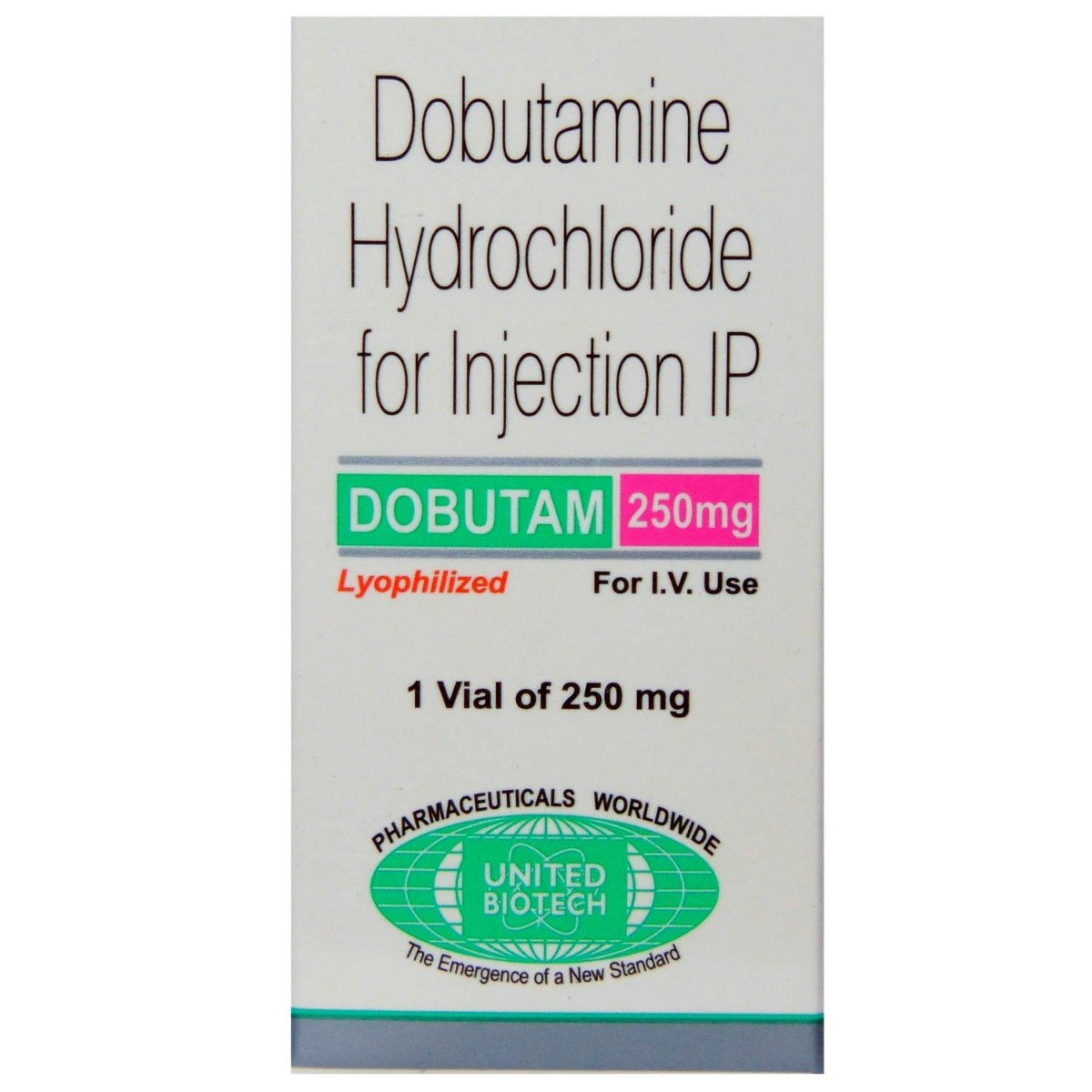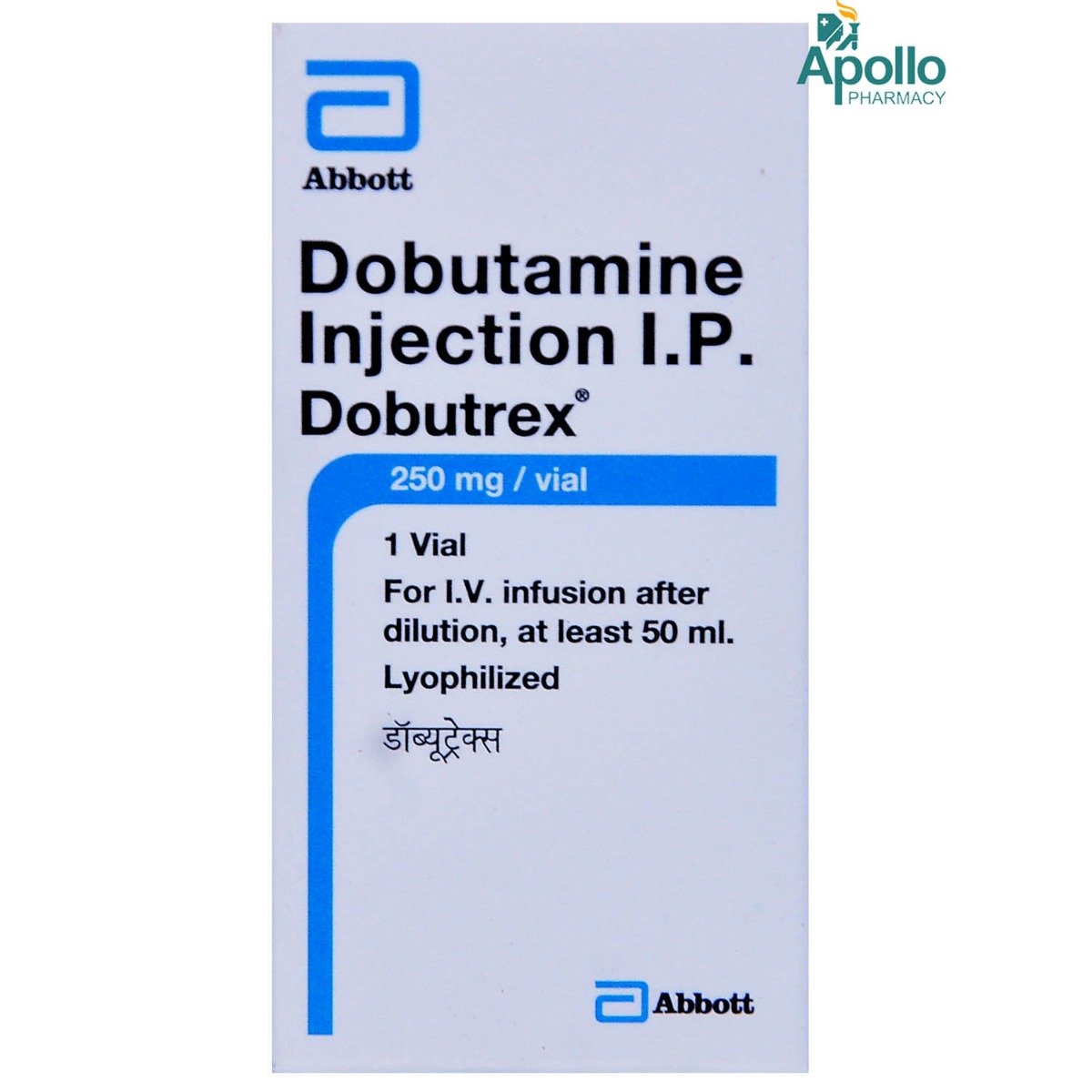Dobustat 250 mg Injection
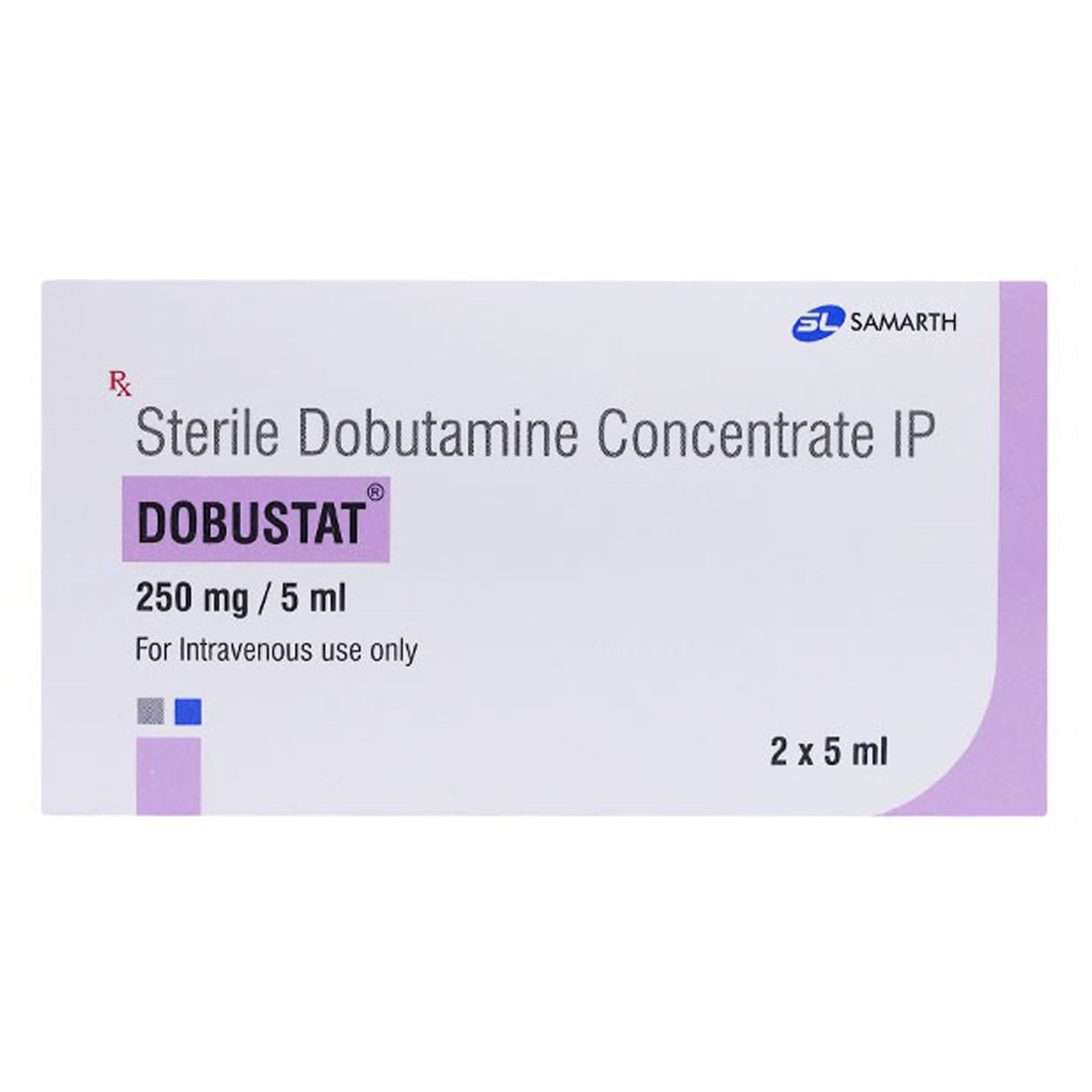
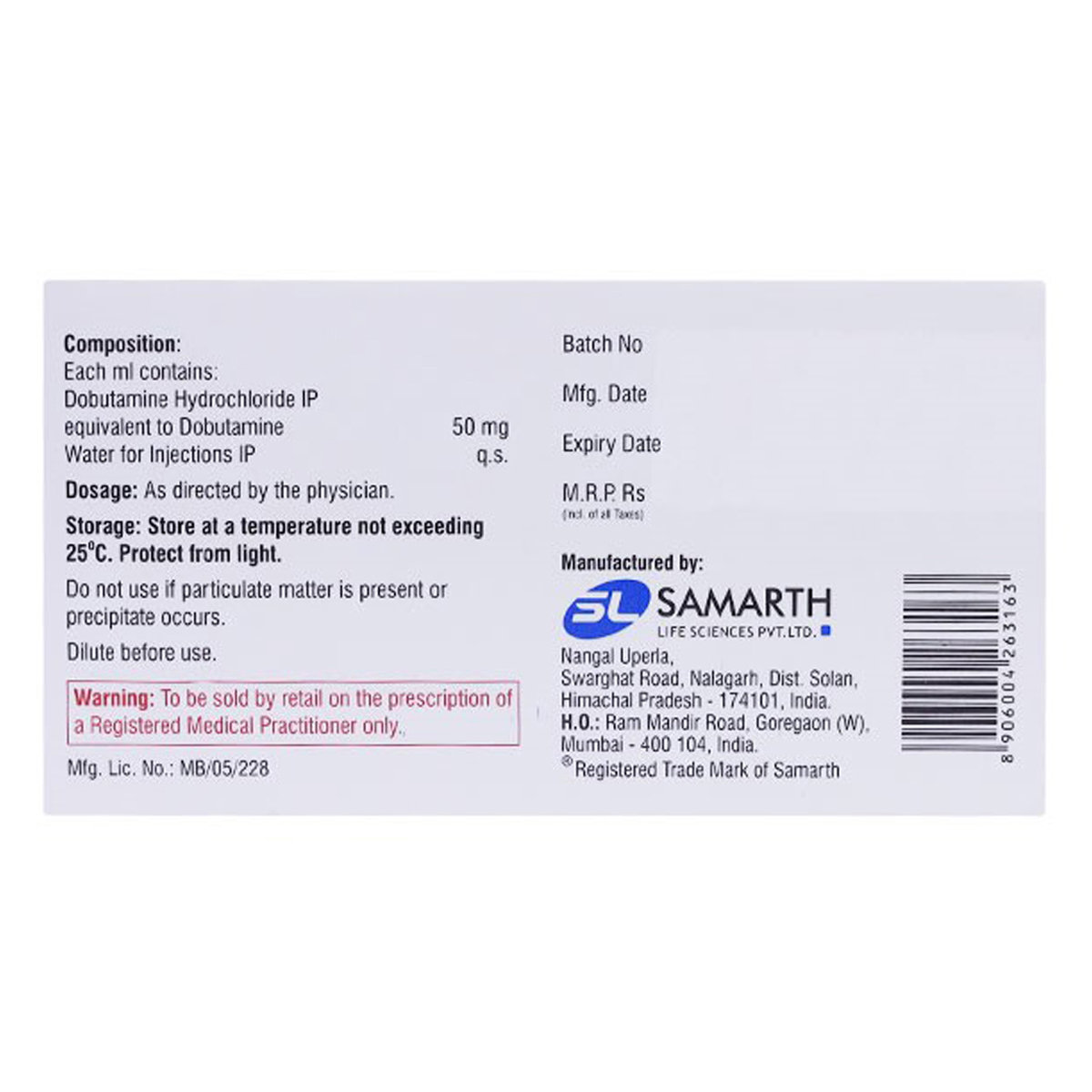
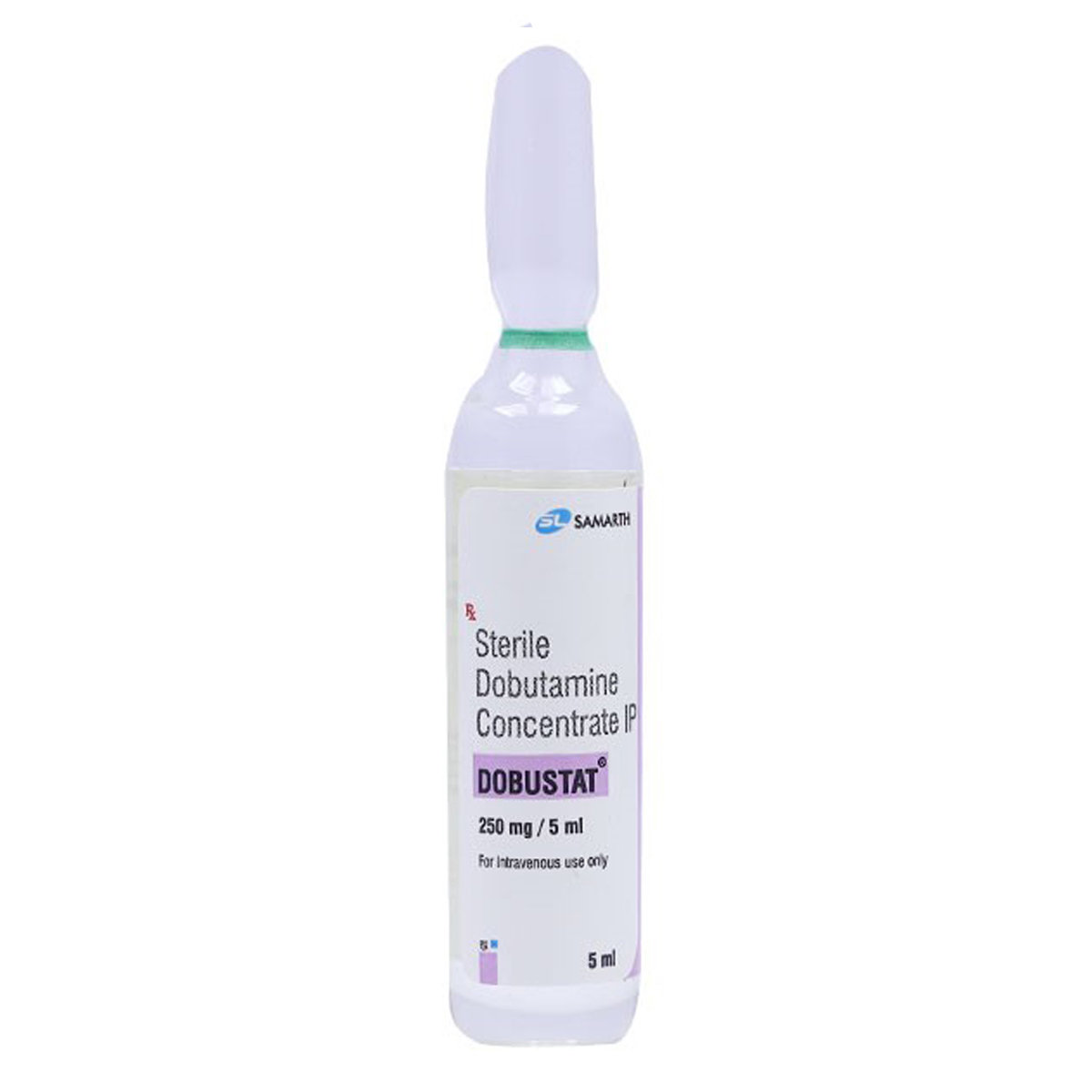
MRP ₹48
(Inclusive of all Taxes)
₹5.8 Cashback (12%)
know your delivery time
Provide Delivery Location
Composition :
Manufacturer/Marketer :
Consume Type :
Expires on or after :
Return Policy :

Secure Payment

Trusted by 8 Crore Indians

Genuine Products
Therapeutic Class
Country of origin
Manufacturer/Marketer address
Author Details
We provide you with authentic, trustworthy and relevant information
Disclaimer
Alcohol
Safe if prescribed
Avoid consumption of alcohol. Please discuss with your doctor if you have concerns.
Pregnancy
Consult your doctor
Dobustat 250 mg Injection is considered safe to be used in pregnancy. However, if you are pregnant or planning pregnancy, inform your doctor before receiving Dobustat 250 mg Injection.
Breast Feeding
Consult your doctor
Limited data are available on the effect of Dobustat 250 mg Injection on breastfeeding. Hence, if you are a nursing mother, inform your doctor before receiving Dobustat 250 mg Injection.
Driving
Safe if prescribed
Dobustat 250 mg Injection is generally intended for use in hospitalized patients.
Liver
Consult your doctor
If you have liver problems, inform your doctor before receiving Dobustat 250 mg Injection. Your doctor may adjust the dose of this medicine if necessary or prescribe a suitable alternative based on your condition.
Kidney
Consult your doctor
If you have kidney problems, inform your doctor before receiving Dobustat 250 mg Injection. Your doctor may adjust the dose of this medicine if necessary or prescribe a suitable alternative based on your condition.
Children
Safe if prescribed
Dobustat 250 mg Injection is not recommended for children as safety and effectiveness were not established in children.
Product Substitutes
About Dobustat 250 mg Injection
Dobustat 250 mg Injection belongs to a class of medicines called vasopressors used to treat patients with low cardiac output, decompensated heart failure (DHF), and Myocardial infarction (MI). Myocardial infarction, also known as a heart attack, could occur due to the lack of blood and oxygen supply to the heart. Cardiac decompensation is an abnormal condition in which the heart is no longer able to maintain efficient circulation.
Dobustat 250 mg Injection contains Dobutamine which works by increasing blood flow to the muscles and increasing the pumping efficiency of the heart.
Dobustat 250 mg Injection will be administered by a healthcare professional. Hence, do not self-administer. Sometimes, Dobustat 250 mg Injection may cause common side effects such as headache, nausea, shortness of breath, chest pain, irregular heartbeat and pain at the site of injection. Most of these side effects do not require medical attention and gradually resolve over time. However, if the side effects persist, please consult your doctor.
If you are allergic to Dobutamine or other ingredients of Dobustat 250 mg Injection, please inform your doctor. If you are pregnant or breastfeeding or have a history of blood circulation problems, inform your doctor before receiving Dobustat 250 mg Injection. Dobustat 250 mg Injection is not recommended for children as safety and effectiveness are not established.
Uses of Dobustat 250 mg Injection
Medicinal Benefits Mweb
Key Benefits
Dobustat 250 mg Injection contains Dobutamine which is used to treat Cardiac decompensation and low cardiac output patients. It works by increasing blood flow to the muscles. Additionally, it may be used in people with congestive heart failure (heart failure due to the build-up of blood or fluid) to help the heart pump better by increasing the pumping efficiency of the heart.
Directions for Use
Side Effects of Dobustat 250 mg Injection
- Headache
- Nausea
- Shortness of breath
- Chest pain
- Irregular heartbeat
- Injection site reactions.
Drug Warnings
If you are allergic to Dobutamine or any other ingredients of Dobustat 250 mg Injection, please tell your doctor. Dobustat 250 mg Injection is not recommended for children as safety and effectiveness were not established. If you are pregnant or breastfeeding, please inform your doctor before receiving Dobustat 250 mg Injection. If you have a history of blood circulation problems, inform your doctor, as you will be monitored for any changes in the colour or temperature of your fingers or toes. If you experience any pain or swelling at the injection site during or immediately after the injection, inform your doctor immediately so that appropriate treatment may be given.
Drug-Drug Interactions
Drug-Drug Interactions
Login/Sign Up
Coadministration of Amitriptyline with Dobustat 250 mg Injection can enhance the blood pressure-raising effects of Dobustat 250 mg Injection.
How to manage the interaction:
Although there is a possible interaction between Amitriptyline and Dobustat 250 mg Injection, you can take these medicines together if prescribed by your doctor. It's important to keep an eye on your blood pressure regularly. If you notice any of these symptoms like Itchy skin or red skin rash, swollen eyes, lips, hands, and feet, feeling lightheaded or dizzy, swelling of the mouth, throat, or tongue, which can cause breathing and swallowing difficulty, coughing, stomach discomfort, nausea, vomiting, or unconsciousness, make sure to consult a doctor. Do not discontinue any medications without consulting a doctor.
Doxepin can enhance the blood pressure-raising effects of Dobustat 250 mg Injection.
How to manage the interaction:
There may be a possibility of interaction between Dobustat 250 mg Injection and Doxepin, but it can be taken if prescribed by a doctor. If you experience any symptoms contact your doctor immediately. Do not stop using any medications without a doctor's advice.
Co-administration of Dobustat 250 mg Injection and Linagliptin may interfere with blood glucose control and reduce the effectiveness of linagliptin.
How to manage the interaction:
Co-administration of Linagliptin with Dobustat 250 mg Injection can possibly result in an interaction, but it can be taken if your doctor has advised it. Do not stop using any medications without a doctor's advice.
Coadministration of Nortriptyline with Dobustat 250 mg Injection can increase the risk or severity of irregular heart rhythm.
How to manage the interaction:
Taking Nortriptyline with Dobustat 250 mg Injection together can result in an interaction, it can be taken if your doctor has advised it. However, if you experience throbbing headaches, tremors, palpitations, or chest pain, contact a doctor immediately. Do not discontinue any medications without consulting a doctor.
Taking clomipramine with Dobustat 250 mg Injection can increase the effects of Dobustat 250 mg Injection.
How to manage the interaction:
Although taking Dobustat 250 mg Injection and Clomipramine together can cause an interaction, it can be taken if your doctor has suggested it. It's important to keep an eye on your blood pressure regularly. If you notice any unusual symptoms, make sure to contact a doctor right away. Do not discontinue any medications without consulting a doctor.
Drug-Food Interactions
Drug-Food Interactions
Login/Sign Up
Drug-Diseases Interactions
Drug-Diseases Interactions
Login/Sign Up
Drug-Drug Interactions Checker List
- NORTRIPTYLINE
- IMIPRAMINE
- PHENYTOIN
- AMITRIPTYLINE
- PROPRANOLOL
- AMOXAPINE
- METOPROLOL
Habit Forming
Special Advise
Diet & Lifestyle Advise
- Eat small meals more frequently.
- Drink plenty of fluids to stay hydrated as dehydration may reduce blood volume resulting in low blood pressure.
- Include vitamin B12-rich foods such as animal meats, eggs, fortified cereals, and nutritional yeast.
- Take frequent breaks if you exercise outdoors in extreme heat.
- Avoid spending a long time in hot tubs, steam rooms, and saunas to prevent dehydration.
All Substitutes & Brand Comparisons
RX
Dotamin Injection 5 ml
Neon Laboratories Ltd
₹48
(₹8.64/ 1ml)
79% CHEAPERRX
Dobutam 250mg Injection 5ml
United Laboratories
₹202.5
(₹36.46/ 1ml)
13% CHEAPERRX
Out of StockDOBUSOL 250MG INJECTION 5ML
United Biotech Pvt Ltd
₹501
(₹90.18/ 1ml)
113% COSTLIER

Have a query?
Buy best Cardiology products by
Torrent Pharmaceuticals Ltd
Sun Pharmaceutical Industries Ltd
Lupin Ltd
Intas Pharmaceuticals Ltd
Cipla Ltd
Micro Labs Ltd
Macleods Pharmaceuticals Ltd
Abbott India Ltd
Ajanta Pharma Ltd
Ipca Laboratories Ltd
Eris Life Sciences Ltd
Mankind Pharma Pvt Ltd
Lloyd Healthcare Pvt Ltd
Dr Reddy's Laboratories Ltd
Glenmark Pharmaceuticals Ltd
Emcure Pharmaceuticals Ltd
Alembic Pharmaceuticals Ltd
Alkem Laboratories Ltd
East West Pharma India Pvt Ltd
USV Pvt Ltd
Zydus Healthcare Ltd
Aristo Pharmaceuticals Pvt Ltd
Elbrit Life Sciences Pvt Ltd
J B Chemicals & Pharmaceuticals Ltd
Zydus Cadila
Akumentis Healthcare Ltd
Alteus Biogenics Pvt Ltd
Hbc Life Sciences Pvt Ltd
Fusion Health Care Pvt Ltd
Troikaa Pharmaceuticals Ltd
La Renon Healthcare Pvt Ltd
Corona Remedies Pvt Ltd
Jubilant Lifesciences Ltd
Medley Pharmaceuticals Ltd
Knoll Healthcare Pvt Ltd
Msn Laboratories Pvt Ltd
Zuventus Healthcare Ltd
Cadila Pharmaceuticals Ltd
Blue Cross Laboratories Pvt Ltd
Lividus Pharmaceuticals Pvt Ltd
Morepen Laboratories Ltd
Ranmarc Labs
Shrrishti Health Care Products Pvt Ltd
Sanofi India Ltd
Steris Healthcare
Elder Pharmaceuticals Ltd
Primus Remedies Pvt Ltd
Unison Pharmaceuticals Pvt Ltd
Eswar Therapeutics Pvt Ltd
Knoll Pharmaceuticals Ltd
Tas Med India Pvt Ltd
Systopic Laboratories Pvt Ltd
Indiabulls Pharmaceuticals Pvt Ltd
Leeford Healthcare Ltd
Sinsan Pharmaceuticals Pvt Ltd
Biochem Pharmaceutical Industries Ltd
Cadila Healthcare Ltd
Azkka Pharmaceuticals Pvt Ltd
Nirvana India Pvt Ltd
Orsim Pharma
Prevego Healthcare & Research Pvt Ltd
Econ Healthcare
Elinor Pharmaceuticals (P) Ltd
FDC Ltd
Sunij Pharma Pvt Ltd
Nicholas Piramal India Ltd
Astra Zeneca Pharma India Ltd
Pfizer Ltd
Lia Life Sciences Pvt Ltd
Shine Pharmaceuticals Ltd
Elicad Pharmaceuticals Pvt Ltd
Indoco Remedies Ltd
Proqol Health Care Pvt Ltd
Vasu Organics Pvt Ltd
Biocon Ltd
Opsis Care Lifesciences Pvt Ltd
Johnlee Pharmaceuticals Pvt Ltd
Merck Ltd
Wockhardt Ltd
Auspharma Pvt Ltd
Ergos Life Sciences Pvt Ltd
Lakshya Life Sciences Pvt Ltd
Ordain Health Care Global Pvt Ltd
Pficus De Med Pvt Ltd
ALICAN PHARMACEUTICAL PVT LTD
RPG Life Sciences Ltd
Glynis Pharmaceuticals Pvt Ltd
Orris Pharmaceuticals
Samarth Life Sciences Pvt Ltd
Aprica Pharmaceuticals Pvt Ltd
Aretaeus Pharmaceuticals Pvt Ltd
Koye Pharmaceuticals Pvt Ltd
Neocardiab Care
Retra Life Science Pvt Ltd
Alniche Life Sciences Pvt Ltd
Alvio Pharmaceuticals Pvt Ltd
Arkas Pharma Pvt Ltd
Atos Lifesciences Pvt Ltd
Divine Savior Pvt Ltd
Metalis Lifesciences Pvt Ltd

.jpg?tr=q-85)


